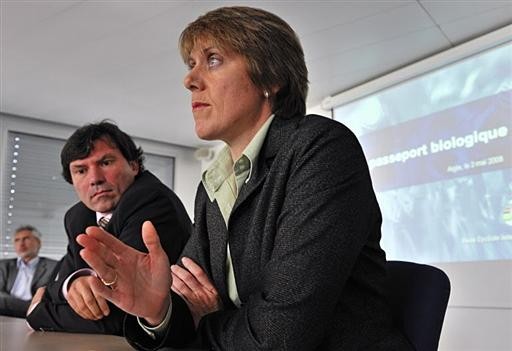UCI asks riders to explain blood values
"Small number" of riders to provide medical explanation for abnormal readings

The International Cycling Union (UCI) is continuing its analysis of riders' blood values as part of the biological passport programme and has again pinpointed a "small number" of athletes with abnormal readings. Last year, five riders were identified as having manipulated their blood, namely Spain's Igor Astarloa, Ruben Lobato and Ricardo Serrano and Italy's Pietro Caucchioli and Francesco De Bonis.
UCI president Pat McQuaid revealed to Bloomberg that a handful of riders had been asked to explain their blood values to the independent expert panel that examines the biological passport readings. "We see no other reason other than a possible potential doping reason," said McQuaid.
A rule change within the wider biological passport guidelines, approved by WADA in December 2009, foresees that the athletes have 30 days to explain their abnormal readings to the UCI before the organisation can open disciplinary proceedings.
"Once an organisation has decided that a blood profile indicates the high likelihood of doping, then those athletes must be asked for an alternative pathological or physiological explanation before the organisation can open a potential anti-doping rule violation case," explained Anne Gripper, head of the UCI's anti-doping department, to Cyclingnews on Friday.
Gripper, who did not elaborate further on how many riders were involved, added that, "It's an opportunity for the riders which they may choose to take or not. An anti-doping organisation like us cannot possibly know the full medical history of an athlete through the blood parametres that we collect.
"Our independent panel of nine experts will then examine [the explanations provided]. They advise the UCI on all stages of the profiling process."
It is not known how long the examination of the riders' medical files, if provided within the next 30 days, may take. "That depends on the individual cases and circumstances. It varies from case to case, and I cannot talk about individual cases. At this stage, we're not sure," Gripper said.
The latest race content, interviews, features, reviews and expert buying guides, direct to your inbox!
